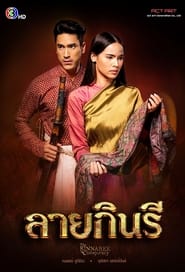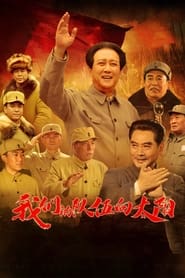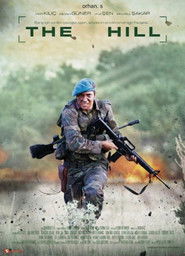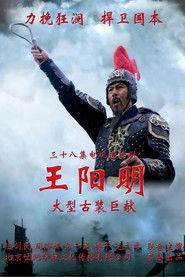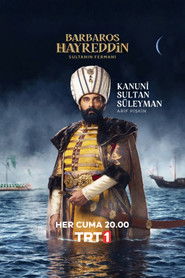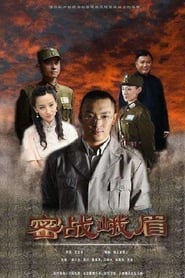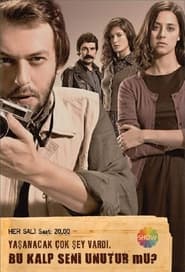War Politics TV Series - Page 45
-
The Kinnaree Conspiracy
2022
star 7.3During the reign of Narayan Nyamgyi, the land of Ayutthaya was prosperous, as I said, there was trade with Westerners, and everywhere there were foreign merchants, ambassadors, It is full of military officers. Makoying Phutkan is the daughter of a famous physician who has passed away. Lon Trafford is a battalion commander responsible for the safety of the city's citizens. Robert is an officer who is close to the French diplomatic officer recruited from the King of France. One day, when the body of a drowned person appeared, and the dead person was a French officer, the officer not only drowned, but also wore a canary dress that only young ladies in the court wear, and conflicts arose between France and Ayutthaya. When Loin and Rob have feelings for escape -
Ain't Misbehavin'
1997
Ain't Misbehavin'
1997
star 7Comedy drama set during World War Two following the misadventures of two very different bandsmen - one an ex-air force pilot, the other a draft dodging, scheming private detective - as they get caught up with gangsters and romance in blitz torn London. -
Burnt by the Sun 2
2011
Burnt by the Sun 2
2011
star 1Former commander Kotov, unjustly convicted in the 30s as an enemy of the people, miraculously survived and was sent to war by an ordinary ordinary soldier of the penal battalion. He fought like everyone else: in mud, cold and hunger, without looking into the future for more than one day, and even that he had to be able to live. To live and survive in the hell that was the military front line. His faith saved him. Faith in his country, faith in God and the faith of his daughter Nadia that the father is alive… -
Jin Ling Battle
2016
Jin Ling Battle
2016
-
双枪李向阳
2007
双枪李向阳
2007
-
The Hill
2010
-
The Brave Victory
2018
The Brave Victory
2018
During a time of war, a man joins the Communist party and starts on a road to revolution. In the year 1946 when the Nationalists and the Communists were engaging each other's forces in Dongbei, bandits have become a serious problem and caused much suffering among ordinary citizens. Yang Fenghuo is an anti-Japanese occupation hero who has retired from service. He and Gong Wantang are blood brothers and rivals in love, but Gong Wantang is the leader of the bandits. Song Yi is a military man on a mission to bring down the bandits which leaves Yang Fenghuo with a difficult dilemma as he has to choose between patriotism and loyalty to an old friend. -
Code Name
2016
Code Name
2016
In 1941. Feng Jiusi, the young police officer working within the British Concession, witnessed the death of a member of the underground Chinese Communist Party and was unfortunately marked as a suspect by the CCP. Meanwhile, the Japanese were amid clearing the anti-Japanese factions in Tianjin as they prepared to take over the British-French concession. As an undercover CCP member in the police force, Feng Jiusi must prove his loyalty to the CCP as he works to uncover the plot of the Japanese. -
Tantara
0000
Tantara
0000
A period drama depicting the birth of the Korean entertainment industry, and its growth from the Korean War to the 1980s. -
Battlefield Gun King
2017
Battlefield Gun King
2017
During the beginning of year 1945 in the Northeast region, Lu Yinghao returns from military school in the Soviet Union for his father's birthday celebrations at An Tai Hospital. He arrives just in time to witness the atrocities committed by the Japanese army as they slaughter innocents and takeover the hospital. Lu Yinghao plots revenge and crosses paths with Li Ruxue, a female warrior on a mission. Along the way, a bandit named Tong Xiaofeng falls in love at first sight with Lu Yinghao and steals important documents from him. Lu Yinghao strives to retrieve the documents but gets coerced into marrying Xiaofeng. Despite the obstacles, he continues on a path of being to be a hero of the people. -
王阳明
2012
-
Barbaros Hayreddin Sultanin Fermani
2022
star 7TRT's historical drama, based on the life of "Barbaros" Hayreddin Pasha and his brothers. The series tells the adventures of Ishak, Oruc, Hizir, and Ilyas fighting high tides and the secrets of the seas in pursuit of the holy secret. -
忠者无敌
2015
忠者无敌
2015
In 1935, Sichuan commander Pan Tianxiong, torn between duty and patriotism, secretly cooperates with the Red Army. Inspired by officer Yi Min, he shifts his focus to resisting Japanese aggression. Despite relentless pressure and betrayal, he remains steadfast in defending his country, ultimately making a heroic final stand. -
All Watched Over by Machines of Loving Grace
2011
star 8.2We have been colonised by the machines we have built. Although we don't realise it, the way we see everything in the world today is through the eyes of the computers. -
A Life's Worth
2025
A Life's Worth
2025
star 8.3A deep dive into the Bosnian War, that tore the country apart at the dawn of the 1990s, A Life’s Worth explores with intensity the unimaginable dilemma faced by the peacekeepers sent to the region, unable to intervene in a conflict that was beyond their control. A gripping series and a much-needed look back at one of the most violent wars in recent European history, prompting an essential discussion about the weight of commitment, interventionism, and the cost of peace. -
密战峨眉
2012
密战峨眉
2012
During the war against Japan, a Communist agent infiltrates Japanese spies to protect national treasures hidden in Mount Emei, facing dangerous missions and personal sacrifices, as love and tragedy unfold amid the fight to safeguard China’s heritage. -
Anzacs
1985
Anzacs
1985
star 6.7Anzacs was a 1985 5-part Australian miniseries set in World War I. The series follows the lives of a group of young Australian men who enlist in the 8th Battalion of the First Australian Imperial Force in 1914, fighting first at Gallipoli in 1915, and then on the Western Front for the remainder of the war. -
谍变1939
2010
谍变1939
2010
